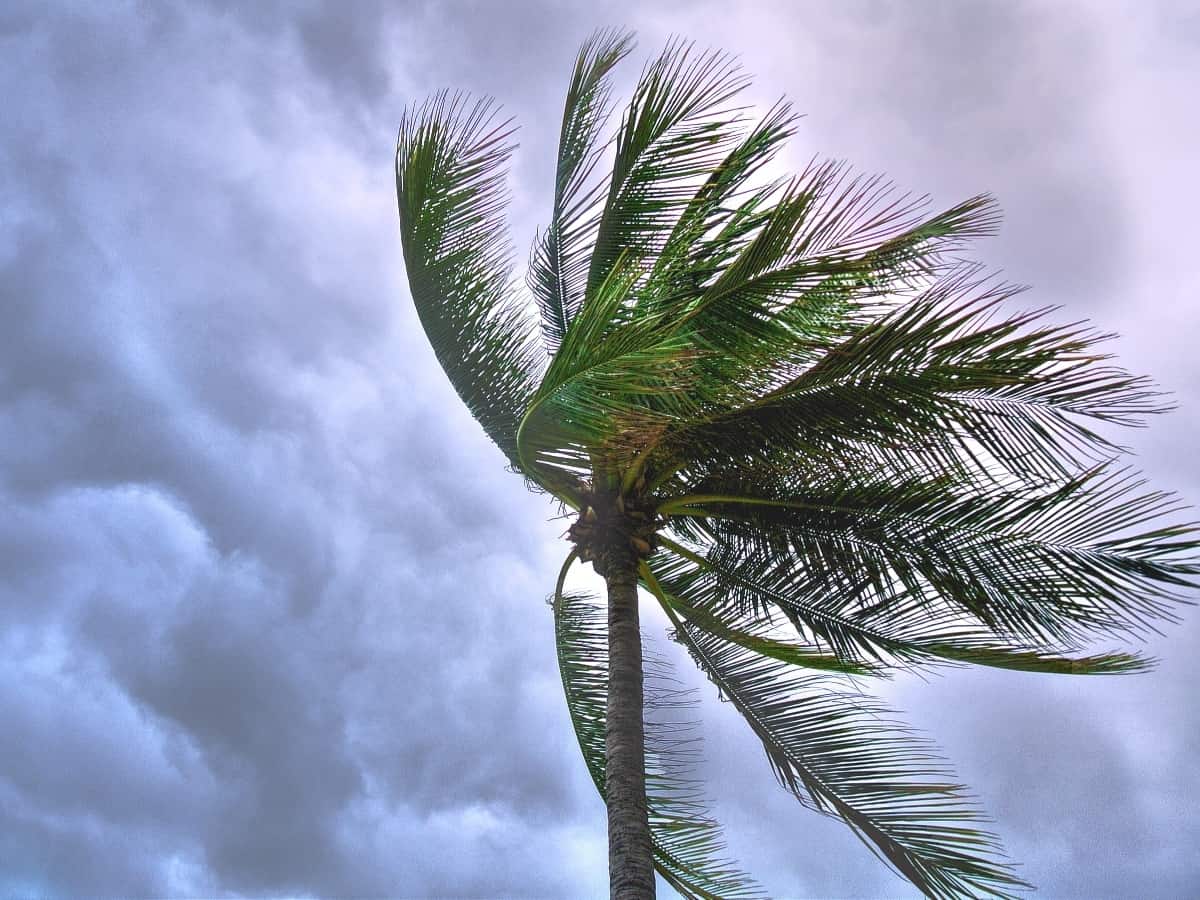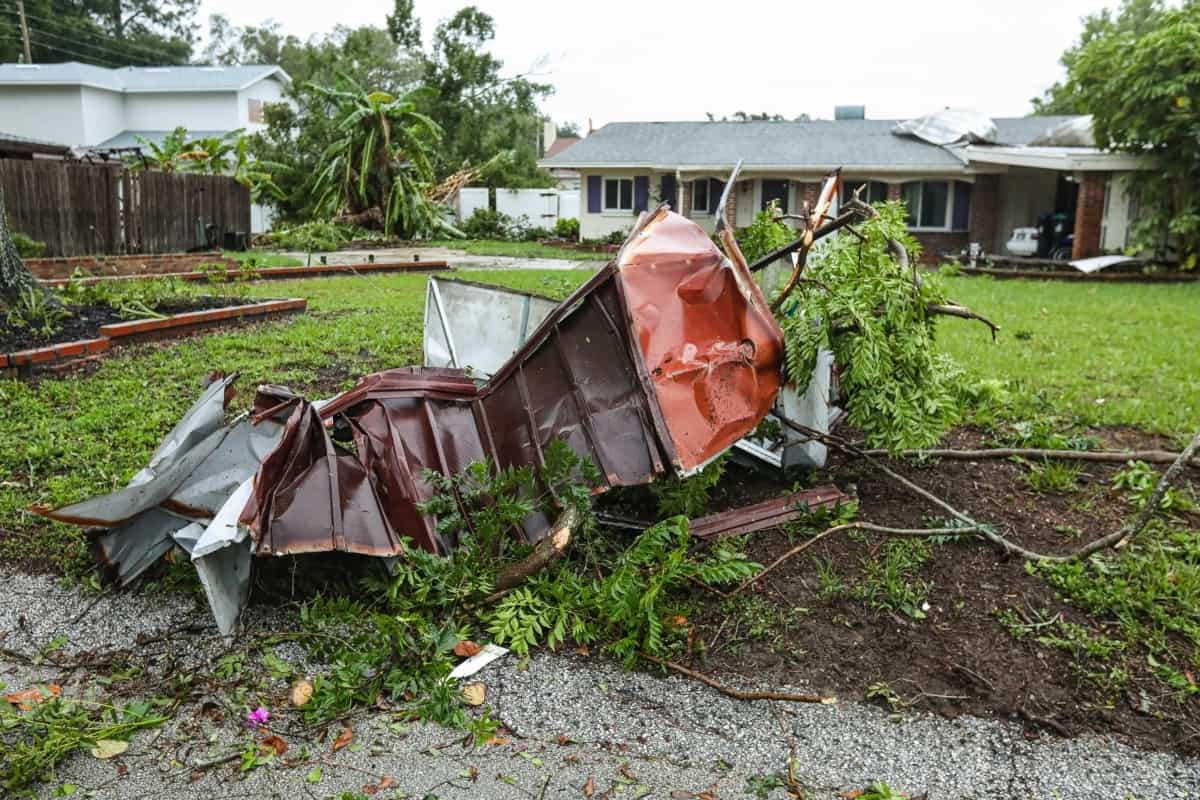Do you know if your policies or home insurance cover hurricane damage? Insurance can be a tricky thing to understand. Most homeowners have a basic grasp on their coverage but may not be clear about extenuating circumstances that are few and far between like hurricanes and the damage that they cause. Though homes that are located in coastal cities are aware of hurricanes, damage that is extensive may not occur every storm season. Make sure you know whether or not your home insurance cover hurricane damage before a big storm hits.
What Damage is Typical with Hurricanes and Tropical Storms?
- Flooding
- Wind damage
- Roof Damage
- Damaged exteriors
- Vehicle Damage
Flood Damage
The first and most common type of damage that is associated with hurricanes is water damage and flood damage. Hurricanes bring heavy rain, torrential at times, so heavy in fact that the ground does not have time to absorb the rain resulting in flash flooding and prolonged flooding in areas where the rain does not stop quickly. They can also bring high winds, storm surges from the ocean that can cause further flooding and can even knock down buildings, and tornadoes in some cases. These storms mean business and they can build up strength in a very short period of time which may not give homeowners time to prepare their homes.
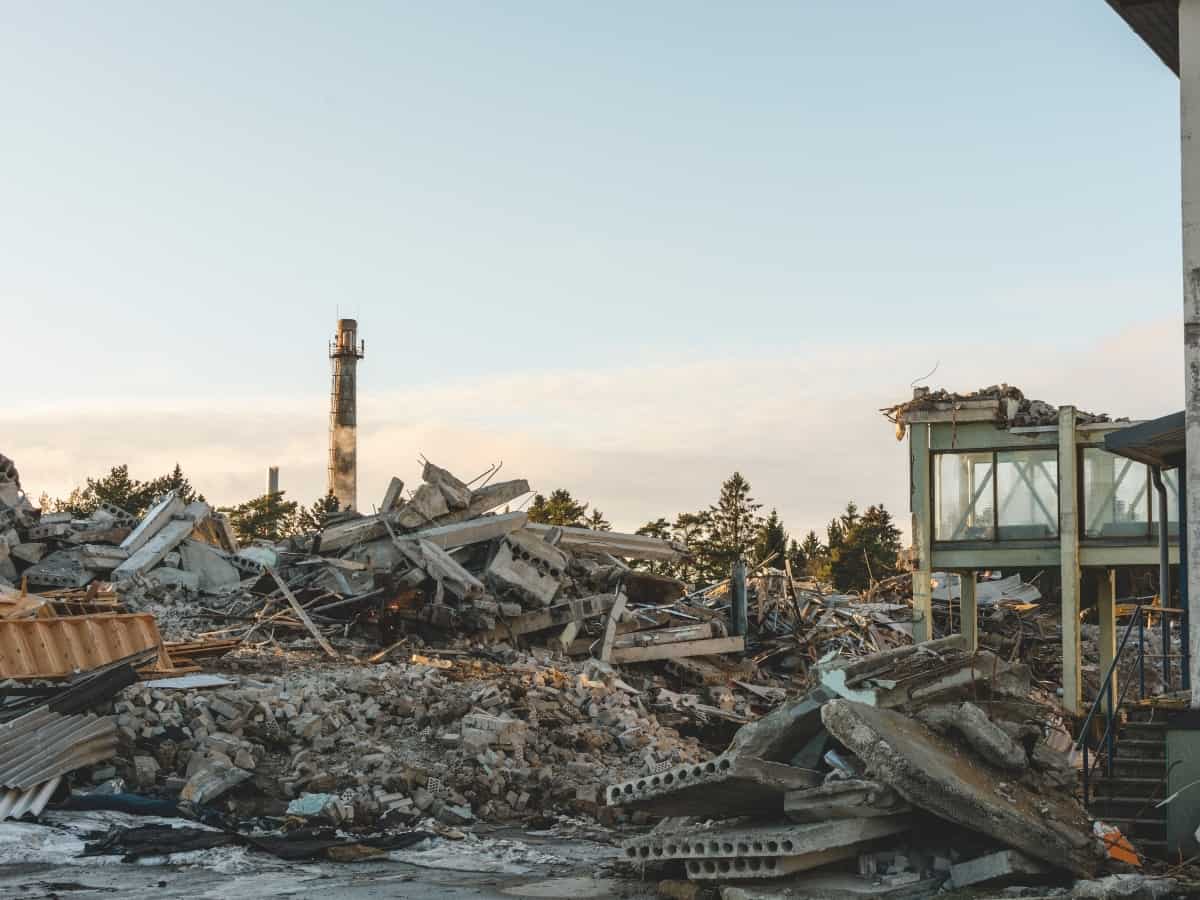
Wind and Structural Damage
Another type of damage common with hurricanes is wind damage. A category one hurricane, or a small hurricane, has winds of up to 95 miles per hour. A category two has wind up to 110 miles per hour. The category three has winds up to 129 miles per hour, and the wind speeds just keep climbing. It has been reported that winds of 90 miles per hour are strong enough to cause significant structural damage to homes and to certainly rip up trees and send them into homes, pick up cars, move outbuildings and more.
Roof Damage
You also have to worry about things like damaged roofs that comes with wind and rain combined. Extended rain can cause leaks in roofs while wind can rip of shingles and other roofing materials. This means that your roof can be badly damaged or can even be ripped off in some cases. You may also have to deal with issues like siding that is ripped off, shutters that are ripped off and more by way of extensive damage to the exterior of your home.
Damage to Vehicles
The last thing you may have to deal with is damage to your vehicle. Though you may be able to get it into the garage, water can still make its way into the garage to ruin your car and cause even more damage. Hurricanes are a force of nature not to be messed with. While getting yourself and your family to safety is a priority, making sure you are protecting your property is safe is also important.
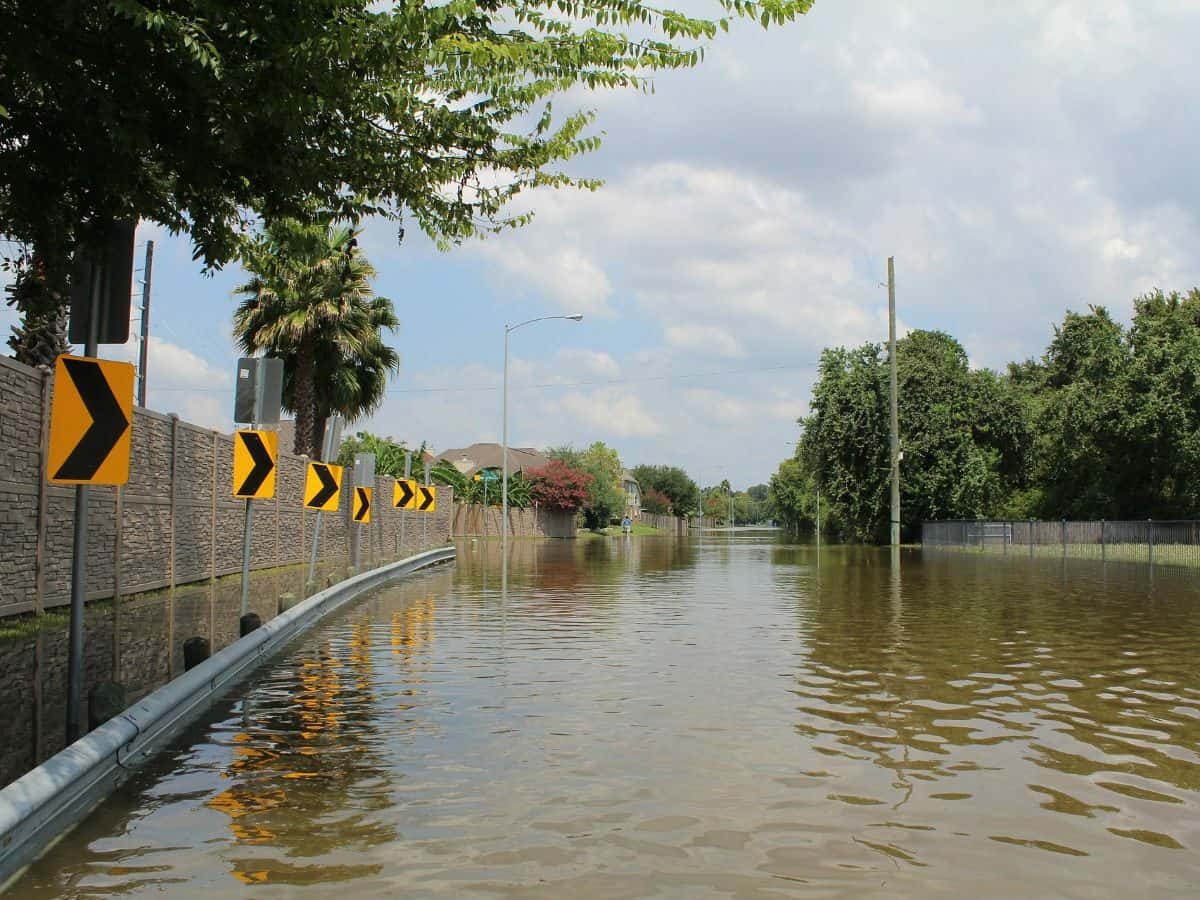
Does Home Insurance Cover Hurricane Damage?
Long story short, yes, most homeowner’s insurance policies do cover the damage from hurricanes to a certain extent, but the coverage is not listed as hurricane coverage and there is no specific policy that is going to cover all the issues that come with this type of storm. As we mentioned, there is no hurricane policy, instead, most policies will cover storm damage to a certain extent. You may need to get extra windstorm damage coverage if policies in your area exclude them from basic coverage and you will certainly need flood insurance.
With hurricanes and homes that are located in areas where hurricanes are possible and even probable, a flood policy is always a good idea. Most basic policies are not going to cover flood damage because flooding is not an issue in all locales. A home that is in Nebraska and 50 miles away from any large bodies of water is not likely to flood, so a basic policy is not likely to include it. Similarly, a home that is located on the coast in an area where flash flooding and hurricanes are likely to happen will need extra coverage that is not offered.
The biggest thing to keep in mind is that you need to make sure you are tailoring your coverage to the area that you live and to the conditions that are likely to affect your home and your property. If you live in an area where flooding is common and where hurricanes happen, flood and windstorm insurance is going to help protect your home. This also helps cover the costs of any damage that does not fall under the umbrella of your basic home coverage.
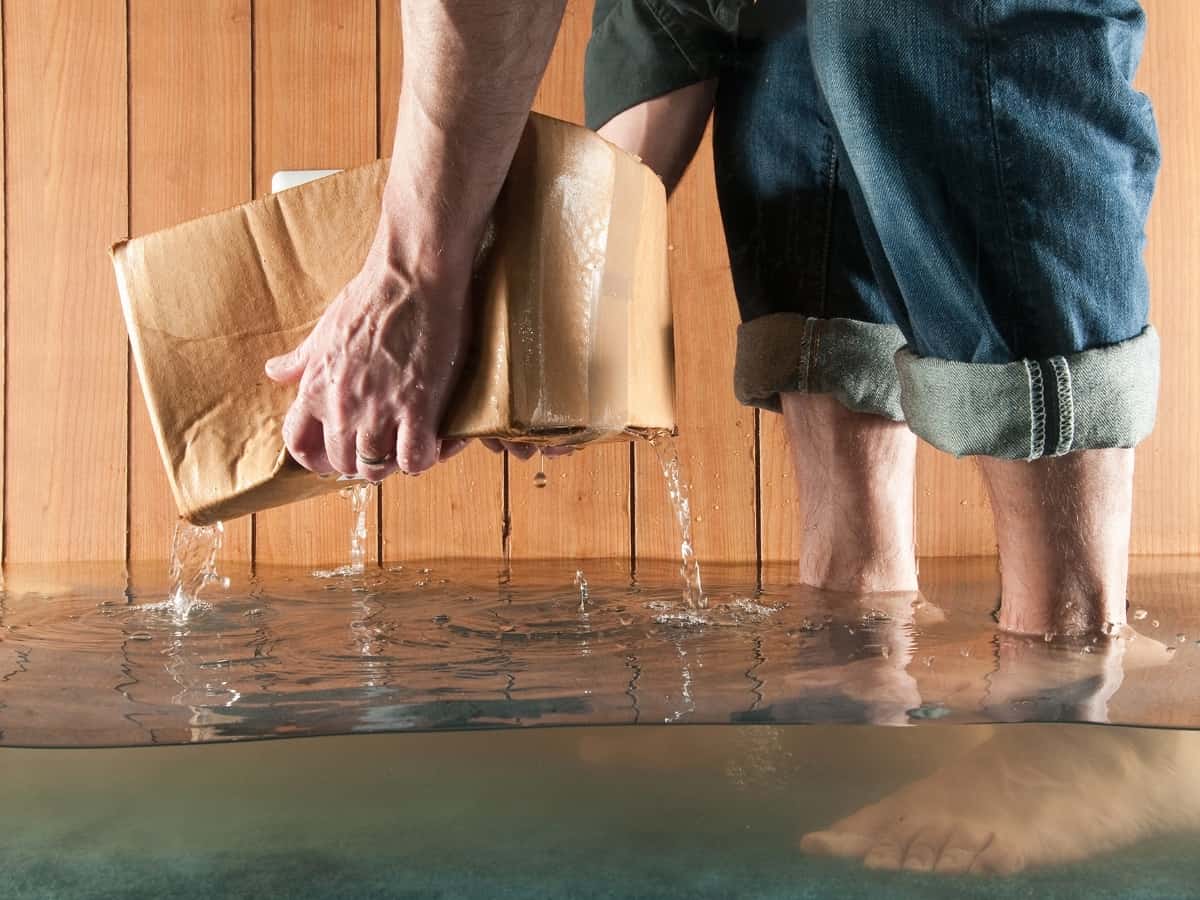
Is Flooding from Hurricanes Covered By Flood Insurance or Home Insurance?
When it comes to figuring out will your home insurance cover hurricane damage and flooding, this is a relatively simple question. The answer is, no. Your home insurance is not going to cover flooding that is caused by hurricanes for a few reasons. For starters, you are likely to be aware of the fact that hurricanes are common in the area in which you are buying a home. This means that you should have taken it upon yourself to buy further insurance to protect your home. At least, that is what the insurance company is going to argue.
This is where tailoring your policy to your needs really comes in handy. If you live in an area where hurricanes are common place and flooding is possible, you should purchase a flood policy. That flood policy will cover any flooding damage that occurs as the result of a hurricane and is going to be far more comprehensive in terms of coverage than your typical home policy.
How to File a Claim
The first thing you need to do is get in contact with your insurance company. The steps are rather straightforward and are easy to follow, especially if you have an agent that is willing to work with you. You will start by contacting an agent and letting them know that you want to file a claim. They will then ask you necessary information and send an adjuster out to take photos, fill out reports and to get the ball rolling.
Your adjuster will help you figure out who your insurance company will accept in terms of repairs, and what paperwork and necessary information needs to be provided to make sure the claim is going to go through. There may be a list of specific people that you can use to have work done or you may be able to get the work done then submit your receipts. It is always best to speak with your agent first about the filing process.
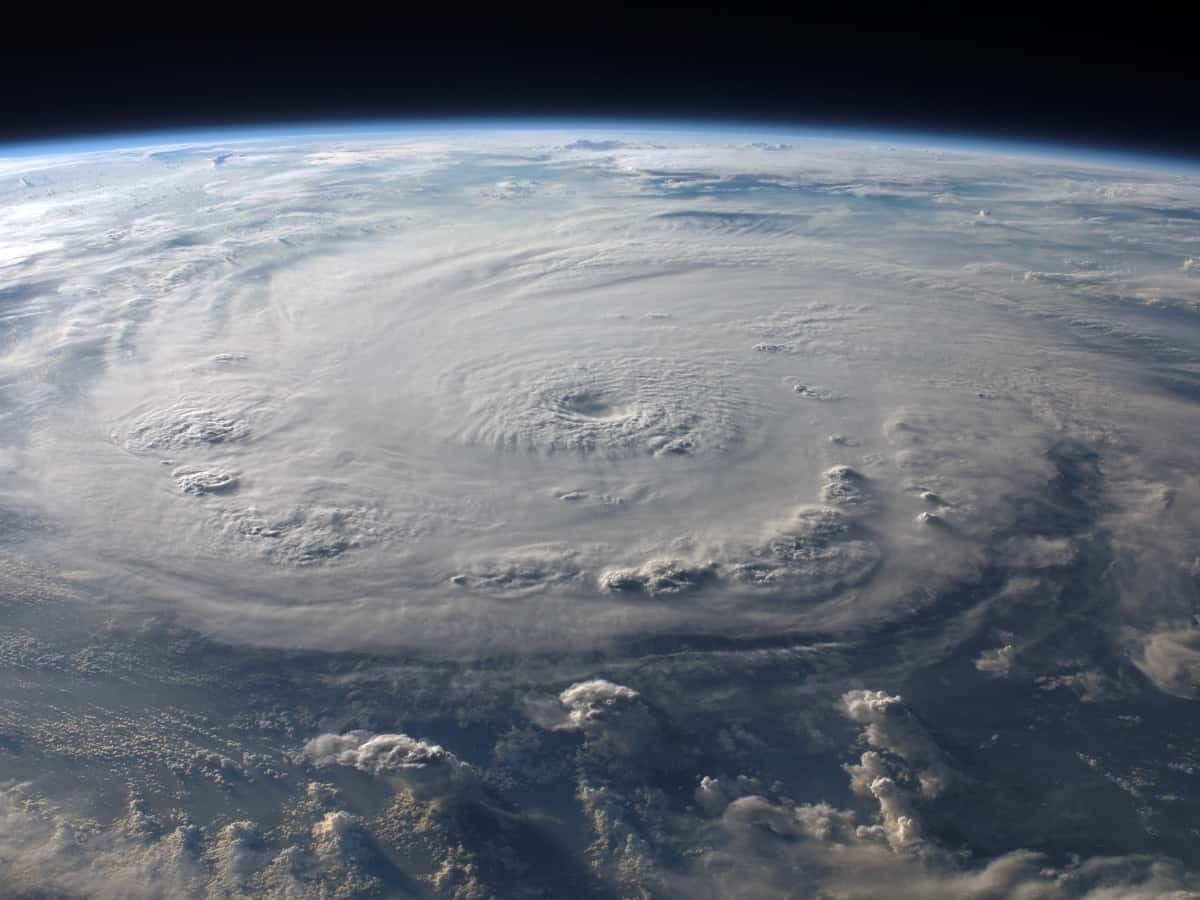
Which States Have Hurricane Deductibles?
Currently, there are 19 states including the District of Columbia that have hurricane or windstorm deductibles:
- Alabama
- Connecticut
- Delaware
- Florida
- Georgia
- Hawaii
- Louisiana
- Maine
- Maryland
- Massachusetts
- Mississippi
- New Jersey
- New York
- North Carolina
- Pennsylvania
- Rhode Island
- South Carolina
- Texas
- Virginia
- Washington D.C.
So, what is a hurricane or windstorm deductible? A hurricane deductible is a deductible that you pay to help cover the cost of repairs after a hurricane. These are often much higher than normal deductibles. If you have a fire in your home or a claim that you want to make your overall deductible might be $1,500. Your hurricane deductible is often a percentage of the overall insured value of your home.
Your home may be insured for $200,000 and your hurricane deductible is %10 of that value, this means that in order to claim hurricane damage on your insurance, you would have to pay $20,000 before the insurance will take over the rest of the cost. In some cases, it may be cheaper for you to pay for the repairs on your own rathe than claiming it on the insurance unless there is extensive damage.
In states where hurricanes are possible and where they happen often, insurance companies almost always offer hurricane and windstorm deductibles on your basic home policies so that you can choose what works best for you and what you want to purchase in terms of insurance.
Does Renters Home Insurance Cover Hurricane Damage?
In most cases, renters is only going to cover non-flood related damage as it pertains to hurricanes. This means that if your home is struck by lighting and there is a fire, your renters policy will cover it. Similarly, if there is damage by wind or water damage that was not from flooding, your policy will cover it. Your renters policy is not going to cover flooding. This is a fairly standard practice across the board. In this case, you should certainly get an extra flood policy if you feel that this is an issue.
Does Home Insurance Cover Hurricane Damage to Cars in The Garage?
Cars are not covered on your home policy if they are licensed for road use. You can however, claim this type of damage on your car insurance policy and it may be covered. It is best to make sure that your cars are insured and that you can then use that coverage to repair or replace your vehicle.
